- Home
- Rose Tremain
Merivel: A Man of His Time Page 8
Merivel: A Man of His Time Read online
Page 8
She was a very thin woman of about my age, dressed all in black and having no teeth whatsoever, so that to eat a meal in her company was a dangerous pastime, with food flying from her mouth in wondrously far directions and her conversation all but impossible to follow. (My own table manners, about which my wife used to complain very strenuously, appeared, I must believe, impeccably co-ordinated by comparison.)
I wished to try to make myself agreeable to Mademoiselle, nevertheless. Spinster Women create in my heart a kind of terrible anguish, for I know that their lives are bitter. They are the possessors of nothing but their own souls.
Not really knowing on what kind of topic to begin, I told her I was most interested in her agitation about losing her bearings, for that I sometimes suffered the very same thing and had found Versailles, for instance, to be a confusing place.
Mademoiselle Corinne stared at me in stupefaction. ‘What did he say?’ she enquired of Madame de Flamanville. ‘What language is he speaking?’
I could not restrain a burst of mirth from breaking from me at this. I was unable to look at Mademoiselle Corinne, from whose pendulous bottom lip a morsel of soft Parsnip was dangling like a worm, but I looked over at Louise (for such I will call her from now on) and saw that she was laughing too.
‘I apologise,’ I managed to say to Mademoiselle Corinne, suppressing, as best I could, the Riot inside me, ‘for my horrible French. I know it is most inelegant. Would you prefer me to speak English? I have been very impressed by how many of your countrymen understand the English tongue.’
‘I have absolutely no idea,’ said Corinne, ‘what he is talking about. Is he Flemish? Has he got a Flemish name? The Flemish are always impossible to comprehend.’
‘He was only enquiring about your reluctance to leave Paris,’ said Louise. ‘He sympathises with your fears. He says that there are many places in which one may feel lost.’
‘Many places in which one may feel lost? But what a stupid thing to say! I told him, I don’t go to those places. I stay in the Faubourg Saint-Victor. What city is he from?’
‘He is from England,’ said Louise. ‘He is a Doctor of Medicine, residing in England.’
‘Doctor? Did you say Doctor? He doesn’t look like a Doctor.’
‘Ah, that is very interesting,’ I ventured to interject. ‘How do you imagine a Doctor to look?’
Mademoiselle Corinne wiped her mouth, at last removing from our sight the parsnip worm, which fell into her lap, took up her Lorgnette and looked me up and down through its pearly lenses. ‘Thinner,’ she said.
At this I felt another attack of mirth coming on, which I was unable to supress. Reluctantly I rested my knife and fork from their exertions with an admirable roast Grouse, and buried my face in my table napkin and my helpless gurgling filled the air of the Salle à Manger. And, alas for Mademoiselle Corinne de Flamanville, my laughter was such a wondrously contagious thing, it followed that Louise was soon enough overcome with hectic and unstoppable mirth of the kind that almost unseated us from our chairs.
Mademoiselle Corinne stared at us, looking from one to the other in pure dismay. To the Maître d’hôtel, standing by Louise’s chair, she snapped: ‘It is the wine, Bertrand. The wine has turned them into Hyenas. Do not serve them another drop!’
The wine, perhaps, no less than the stimulating journey and the excellent Grouse and the sight of a clean bed, had all contrived, by nightfall, to exhaust me. I had intended to finish my letter to Margaret, but had no will to do anything more than put on my night attire, climb between the linen sheets and surrender myself to the sweet sleep I felt approaching. As I closed my eyes, I reflected that I had not felt as happy as I was at this moment for many years.
All night long, I had a very marvellous Epicureanism of Rest and, when I woke at some time after eight o’clock, found my heart filled with an instantaneous joy.
After breakfast Louise asked me whether I would like to visit her Laboratory and I willingly agreed.
The Laboratory was set out on marble-topped tables, along two sides of a narrow room. Above the tables were stacked, on neat wooden shelving, a great quantity of small Apothecaries’ Jars, carefully labelled and containing, I instantly saw, properties as strong and precarious as Arsenic, Calomel and Ceruse.
‘My word!’ I said. ‘You have poisons here a-plenty. Does your knowledge match their exigencies?’
‘By no means,’ said Louise at once. ‘But I am learning. I am allowed, sometimes, to watch the experiments done in the Laboratory of the Jardin du Roi, on our very doorstep, beyond the gates there. At first the Chemists did not wish me to come there because I am a woman. But I said to them: “Women are kept from all Experimentation in the World. Even our feelings are supposed to follow a Pattern Ordained and never altering. But why should I not at least bear witness to your Experiments? What danger is there in that – only that my admiration for you shall increase!”
‘And though some grumbled that to observe what they did could be “bad for my mind” and one said he thought it might “turn me into a Witch like the infamous La Voisin”, they did not in the end deny me, provided only that I made no comments and never attempted to participate in anything. But they could not prevent me from hastening back here and setting down Notes on what I had witnessed. And so I have begun to learn …’
As she spoke, Louise’s hands were passing tenderly, yet restlessly, along the table, examining jars and Alembics and baskets of herbs set to dry, and a glass tank crawling with snails. I watched her with great attention, reflecting that I had surely never met any woman like her, who was so delightfully compounded of Wit and Seriousness. And I realised that every moment spent in her company had become enthralling to me.
‘Now,’ she said, pausing at the end of one of the tables where a cluster of identical jars were arranged in a little pyramid. ‘Let me show you my only small success.’
She uncorked one of the jars and held it out to me. I pressed it to my nose and the smell reminded me, on the instant, of that muddled time in my Former Life, when I tried my hand as an artist, before giving up in despair.
‘A Salve for sores,’ said Louise. ‘Efficacious also for burns. My chef burned his hand and my Salve restored it within two days!’
‘Bravo,’ I said. ‘I must take some home to England for my cook, Cattlebury, who is so covered in burns, it is as though he had only just escaped a roasting at the stake.’
Louise smiled and went on: ‘I had some difficulty, for a long while, with the proportions of the Ingredients, but they are correct now. Sheep’s tallow, Beeswax, Oil of Turpentine, Plantain leaves boiled for one hour on a soft fire of coals until you have the Reduction you desire. The wax melted very slowly and the Reduction and the Oil stirred in over a very timid heat. The difficulty seemed to lie in getting a Salve that was soft enough to apply, once it cools. But it is soft now. Put your finger in.’
I sampled the Salve and rubbed a little of it onto the back of my hand.
‘What d’you think?’ she asked. ‘You as a Doctor know, many Salves smell rancid, but this does not, does it?’
‘No. It smells very fresh. The Turpentine …’
‘Yes. That I added almost as a perfume. The cure is in the wax and the Plantain, but to me the scent of things is important. Let me make you a present of this jar.’
Offering my thanks, I looked up at Louise, with all my admiration for her surely evident upon my face, for though she held my gaze for a second, she quickly looked away. A woman like Louise de Flamanville, I thought, surely acts like a Salve on a man’s life. By slow degrees, life inflicts its wounds upon him and she heals them.
She showed me other preparations on which she was at work. These included a Lotion ‘to mask or reduce the Stench of the Armpit’.
‘Ah,’ said I, ‘that is much needed at Versailles!’
‘Quite so, Sir Robert. You know, by the way, that Madame de Montespan had a terrible Stink to her person?’
‘No, I did not.’
‘Perh
aps my lotion would have prevented her from falling out of favour. There is a thought. But I have not got it right yet. I am using white wine, Rose-water and seed of wild Rocket. I boiled them first in a glass Alembic, so that I could observe their clarity or their cloudiness, but my fire was too hot and my Alembic exploded, and I was cut with shards of burning glass!’
‘Oh, mon dieu!’ I said. ‘It might have blinded you.’
‘Yes, it might, but it did not. And, strangely, I did not really suffer at all. Indeed, I rather enjoyed myself. For I was struck by the thought that this is what real Chemists undergo, these Shocks and Reversals, and that I could now count myself among their number.’
She handed me a vial, which contained all that she had made of this preparation, and I sniffed it carefully, as connoisseurs of wine sniff their beloved libations.
‘Is it right, d’you think?’ she enquired. ‘It needs to be strong, but not so strong that the lotion itself smells worse than the sweating and engrimed flesh. The Rocket seed will lessen Perspiration, that is proven, and the wine and Rose-water will cleanse, but …’
‘Lemon Grass,’ I said. ‘No more than a few leaves, boiled and added. And you would have a longer-lasting tincture.’
‘Ah,’ said Louise. ‘Lemon Grass. I had not thought of that. What a delight it is to have so able a Laboratory Assistant.’
Though cold, the December day had dawned very fine and when we left the Laboratory to walk into the Jardin du Roi, the sun gave to the neat walks and Knot Gardens an air of shining, wintry beauty.
Louise and I were almost alone in the gardens, they being prohibited to all but a few chosen people.
‘The Royal Chemists allow me to take a few leaves or sprigs from time to time, for my own little experiments,’ said Louise and when we came upon a bed of Lemon Grass, its freshness long past with the onset of the dark season, she leaned down and picked a few ragged stalks and handed them to me.
As she picked she said: ‘I understand very little of Newton, from the few papers of his circulating in France, but his Separation of light into a Spectrum by means of a Prism was explained to me and is, I think, quite wondrous. And I am attracted by his differentiation between Hypothesis, which he says is “pure speculation” and Theory, which has undergone proof. As soon as I took this in, I knew that I must follow his example and make no claim for any of my compounds until I know – for certain – that they are efficacious. Healing must be my only proof.’
‘Quite so,’ I agreed. ‘My friend, John Pearce, was very, very determined upon this question, following his hero, William Harvey, who based everything upon Dissection and Observation, rather than upon Ancient authority. Pearce once said that my tendency to hypothesise made him feel sick.’
‘Ah. Your “tendency to hypothesise”. Is this still with you?’
‘Less with me than at any time. My mind still boils, occasionally, with suppositions and wonderings, for without some of these no new thing will be tried. But I believe I am growing more and more like Harvey in every respect.’
‘Yes? What respects might these be?’
‘Well,’ I said, ‘to name one: Harvey loved the dark. He had caves made in the earth near his house in Surrey, where he delighted to sit and meditate. I have not gone as far as to dig caves, for I am not very enamoured of the creatures who live in them – Bats and Snakes and so forth. But when I am alone in my house in Norfolk, I like to endure the dusk, without lighting a lamp or Tallow. In the Almost-Darkness I can sometimes feel my mind becoming very still, so that I can see with clarity what was indistinct to me before.’
Louise pressed more Lemon Grass into my hand and regarded me closely. The winter sunlight glanced upon her cheek, which in spite of her forty-five years was very smooth and of a very pale olive colour, and I had to restrain myself from leaning forward and placing my lips upon it. Instead, I lifted my bunch of Grass stems to my nose and inhaled their lingering Perfume.
‘There is still a little Lemon freshness in it,’ I said.
‘Good. We will boil the stems and see what the Reduction will add to my tincture. Do you live alone in your Norfolk house, Sir Robert, when your daughter is staying with her Friends, or do you have a wife?’
I fell silent. So congenial did I find the companionship of Louise de Flamanville that I was tempted, there and then, in the cold light of the Jardin du Roi, to relate to her the whole story of my marriage to Celia and its Annulment some years later, after I had been restored to the King’s favour. But I also knew that this piece of my history served mainly to make me appear importunate and foolish, so I drew back.
‘I have no wife,’ I said. ‘She departed from this world long ago. From time to time the King arrives, with some of his retinue and very many dogs, and then I am whirled into fine company once more. But for much of each year I am alone.’
‘I see,’ said Louise quietly and we walked on. We crossed into an allée of Planes, whose great leaves had fallen, to reveal their branches decked with dangling seed-heads, like tarnished jewellery. And it was at this moment that we both became aware of a strange sound, a pitiful howling noise, which spoke to us of great distress. Following the allée to its end, we turned left into a grassy meadow and saw before us a very sorrowful sight.
In a square cage made from branches of elm a great Brown Bear was standing on its hind legs and clawing at the wood, and crying like a wolf. Its jaw was open, to show a tongue foaming and parched, and the sound that came from its throat was as desolate as any sound I have heard in my life.
We stopped and stared. Louise reached out and touched my arm, and I took her hand in mine.
‘I know where its end is to be,’ she said.
‘I, too. The Menagerie at Versailles.’
We stood very still, the misery of the animal choking our senses, so that all we could smell was its terror, and all we could breathe was its woe, and all we could feel in our throats was its thirst.
I could feel Louise’s hand trembling in mine. I held her more tightly to me and, to try to soothe her, began very quietly on a story about a neighbour of mine in Norfolk, one Squire Sands, who whipped the Shire horse that pulled his plough so relentlessly that it died of its wounds.
‘Squire Sands had no money,’ I continued, ‘with which to buy another nag. For a whole season his fields were left to the weeds. But when he saw that he was going to starve if he did not plant his corn and his vegetables, he had no choice but to yoke himself to the plough. And I saw him in his Condition of Horse, straining his heart and lungs to till his own soil. And for a moment I pitied him. But then I remembered what he had done to the Shire mare, and in an instant my heart emptied itself of pity.’
Louise was still and silent for a moment. Then she turned and faced me, and put her arms round me and kissed my mouth.
8
TWENTY-FOUR HOURS HAVE passed: hours very choked with incident and strong feeling.
Eating oysters at lunchtime in an admirable Auberge, as Louise and I licked and wiped our fingers and cooled our salt throats with a delicate wine from the Loire Valley, she leaned near to me and said: ‘I want to tell you about my life, Sir Robert. Or shall you think this very forward?’
‘No,’ I replied. ‘I would be honoured to hear about your life …’
Louise sipped her wine, wiped her mouth and whispered: ‘I would like to explain to you – in the strictest confidence of course – that my marriage with Colonel Jacques-Adolphe de Flamanville, for all that he is a very courageous Soldier, and worthy of my respect, is as arid as an empty lake.’
‘Ah. I am sad to hear—’
‘We have no children. I would have liked to be a Mother, but de Flamanville always and ever said: “You cannot be a Mother, Madame, unless I consent to be a Father, and this I will not do.”’
I touched Louise’s hand. ‘I am sorry for this,’ I said. ‘For I know how precious a child can be …’
‘I think I would have been a loving mother, Sir Robert, but it is too late now. My Ch
emistry work, amateurish though it is, gives a little Meaning to my life, but I am growing tired of the way each passing year is arranged. Paris I like; Versailles I cannot abide. But I think I may soon leave both Paris and Versailles and return to Switzerland, to care for my father, who is old and lonely. I am his only living child and I am very fond of him, and I would not wish him to die alone. Jacques-Adolphe will protest, but I shall not be missed by him, except only as his Camouflage in Society.’
‘His Camouflage?’
‘He is very particular about this, though I scarcely see why. There is a Society at Versailles called the Fraternité. You may guess what kind of Society this is. Its members love only men and de Flamanville is one of their number. Madame de Maintenon would have the King denounce them, but what can he do when his own brother, the Duc d’Orléans, is one of its founders?’
‘Ah. I understand.’
Louise drank more wine. Her hazel eyes were bright and her gaze intense.
‘Perhaps I should not be telling you these things, Sir Robert, except that in you, I seem to find a Spirit very kindred to mine. My life, you see, has been a somewhat solitary thing and I fear this makes me too bold. I have had lovers …’
‘Louise,’ I said, ‘for so shall I call you from now on – and you must call me Merivel, which is the name that I prefer – I rejoice that you have had lovers. I hope they were as rampageous as leopards and as tender as puppy-dogs.’
Louise smiled. ‘I can scarcely remember,’ she said, ‘it was so long ago.’
I took a sip of my wine, the taste of which had never seemed to me as marvellous as it did at this moment. ‘I would like you to say my name,’ I said. ‘Say “Merivel”.’
‘Merivel,’ she repeated quietly. And this saying of my name tugged at my heart.
I took hold of Louise’s hand. ‘Say “Merivel, will you be my lover?”’
I expected her response to come without hesitation. She was a daring woman who appeared shocked by nothing and who, by her recent revelations about her husband and her lovers, had seemed to be leading me closer to her bed. But, to my great Discomfort, she suddenly withdrew her hand and blushed and said she could not say what I had asked. And now I was the one to wonder if, remembering the passion with which I had kissed her in the Jardin du Roi, I had been too ardent and too calculating.

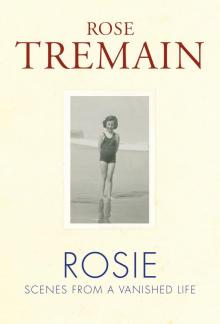 Rosie
Rosie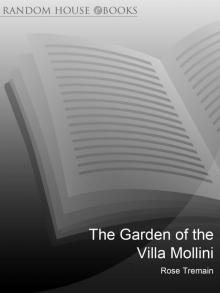 The Garden of the Villa Mollini
The Garden of the Villa Mollini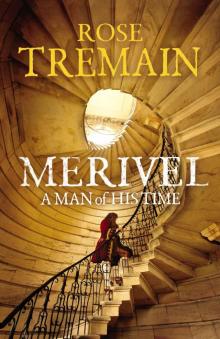 Merivel: A Man of His Time
Merivel: A Man of His Time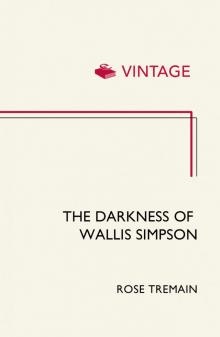 The Darkness of Wallis Simpson
The Darkness of Wallis Simpson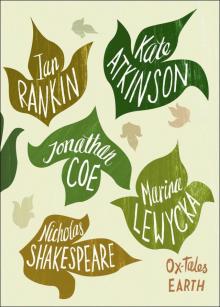 Earth
Earth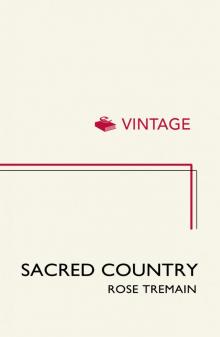 Sacred Country
Sacred Country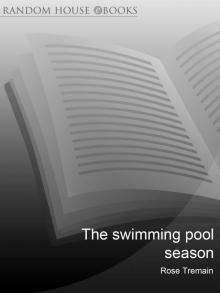 The Swimming Pool Season
The Swimming Pool Season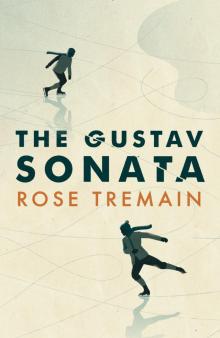 The Gustav Sonata
The Gustav Sonata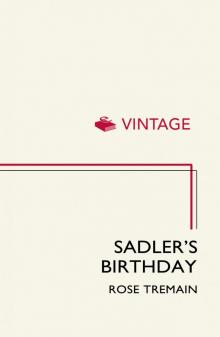 Sadler's Birthday
Sadler's Birthday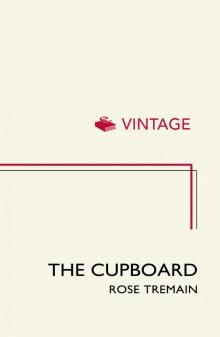 The Cupboard
The Cupboard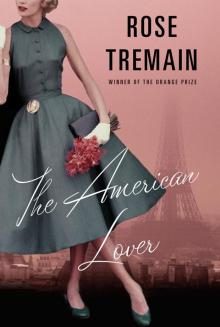 The American Lover
The American Lover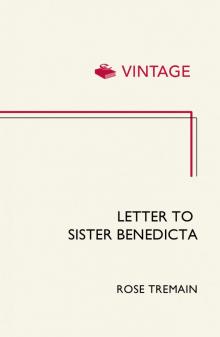 Letter to Sister Benedicta
Letter to Sister Benedicta Evangelista's Fan
Evangelista's Fan Restoration
Restoration The Road Home
The Road Home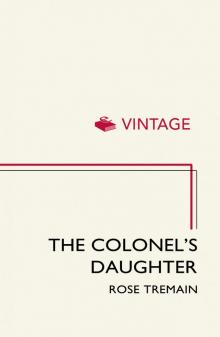 The Colonel's Daughter
The Colonel's Daughter The Way I Found Her
The Way I Found Her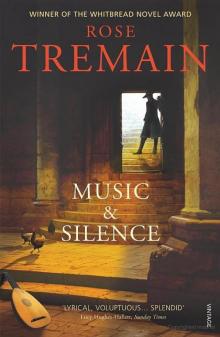 Music & Silence
Music & Silence